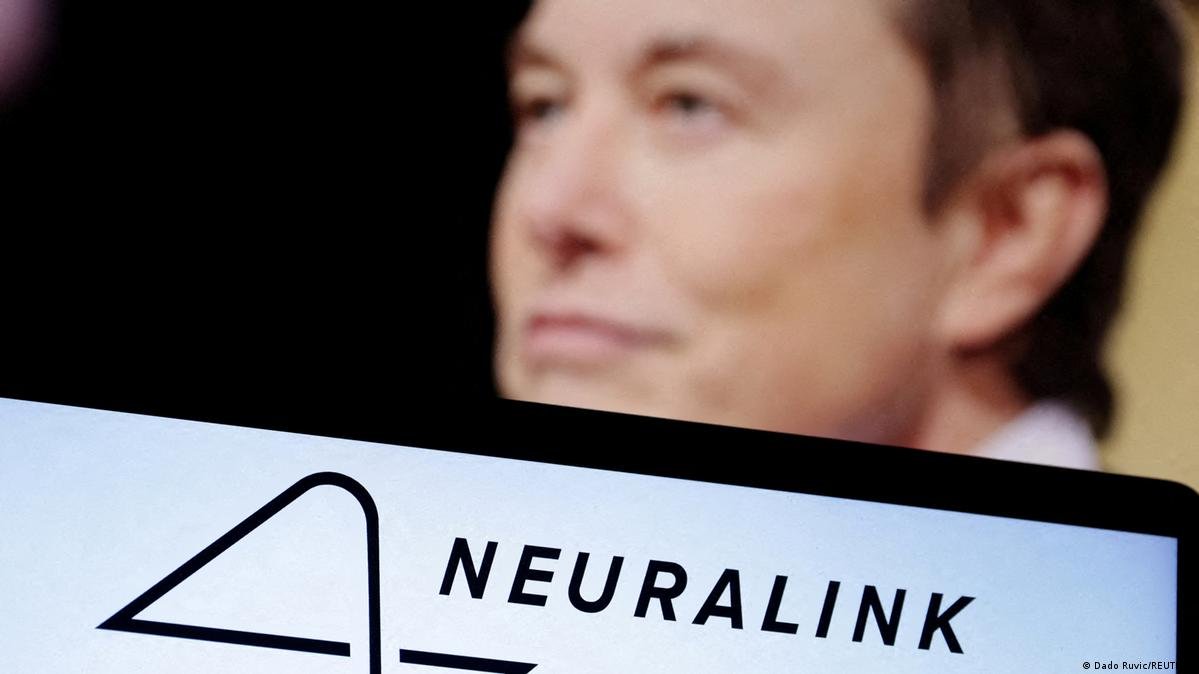Neuralink, the brain-chip startup founded by billionaire Elon Musk, has reached a significant milestone by successfully implanting its wireless brain chip in a human for the first time.
In a groundbreaking achievement, Neuralink, the brain-chip startup founded by billionaire Elon Musk, has reached a significant milestone by successfully implanting its wireless brain chip in a human for the first time. The historic moment was announced by Musk, who stated that the patient is recovering well after the procedure.
Neuralink’s Vision and Technology:
Established in 2016, Neuralink aims to revolutionize the intersection of technology and medicine through its brain-computer interface (BCI). The key component of this innovation is a coin-sized brain implant consisting of ultra-fine threads surgically placed in the brain, facilitating the transmission of signals between neurons and external devices.
The primary functionality of Neuralink’s BCI is to create a direct interface between the human brain and computers. This has promising implications for individuals with physical disabilities, such as quadriplegia, by allowing them to control devices using their thoughts.
The wireless nature of Neuralink’s technology sets it apart, enabling bidirectional communication between the brain and external devices without the need for physical wires or connectors.
Human Trials and Promising Results:
Following the recent successful implantation in a human, Neuralink is entering the human trial phase to collect data on safety and effectiveness.
Musk shared that the initial results show promising neuron spike detection, indicating the ability to accurately detect neural activity. This detection capability opens doors to advanced applications in the future, offering hope for those with neurological disorders.
Testing and Development Process:
Neuralink has conducted extensive testing on animals, including monkeys and pigs, showcasing the chip’s capabilities in tasks like playing video games and controlling a cursor on a screen. While there have been concerns about potential risks associated with brain surgery, including brain haemorrhage or seizures, the U.S. Food and Drug Administration approved human trials in May 2023, emphasizing the need for safety and effectiveness data.
Ethical Concerns and Considerations:
Despite the groundbreaking nature of Neuralink’s technology, ethical concerns have been raised. The experimentation on animals, potential risks of brain surgery, and the vision of implants have sparked discussions about privacy, surveillance, and users’ control over their personal data and neural activity.
The U.S. Department of Transportation even fined Neuralink earlier for failing to register as a transporter of hazardous material related to brain implants from primates.
Considerations for Brain Implant Technology:
As with any emerging technology, the use of brain implants presents a combination of exciting possibilities and potential risks. Surgical risks include infection, bleeding, and scarring, while biocompatibility and long-term effects must be carefully monitored.
Wireless communication brings concerns about electrical interference, privacy, and security, requiring robust measures to protect neural data. Additionally, ethical and social implications, functional risks, psychological impact, and the limited applications of current brain implants must be considered.
Neuralink’s Technology in Action:
Delving into the functionality of Neuralink’s brain implant, it involves a surgical procedure where the coin-sized device is implanted beneath the skull. Ultra-fine threads extend into the brain to read neuron activity, allowing wireless communication with external devices.
The brain signals are then transmitted to a Neuralink app for decoding, interpreting these signals into actions and intents. Users can control external devices or perform tasks through thought alone. Wireless charging eliminates the need for physical connectors, and Neuralink has developed a specialized surgical robot for precise implantation.
Conclusion: Unlocking the Potential of Neural Interfaces:
In summary, Neuralink’s recent success in implanting its brain chip in a human marks a historic achievement with far-reaching implications for the future of technology and medicine. The fusion of the human brain with advanced computing opens new possibilities for communication, mobility, and medical interventions.
While ethical concerns persist, thorough research, rigorous testing, and ongoing monitoring are crucial to ensuring the safe and responsible development of neural interfaces. As Neuralink continues its journey, the world anticipates further advancements that could reshape the landscape of human-computer interaction.
